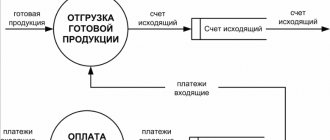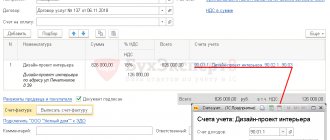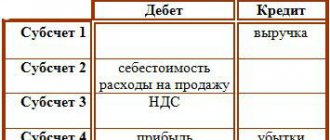The place of sale of goods is recognized as the territory of Russia if at least one of two conditions is met: The goods are located on the territory of Russia and are not shipped or transported; The goods at the time of shipment and transportation are located in Russia.
Organizations and individual entrepreneurs on OSNO are recognized as VAT payers and must charge this tax when performing taxable transactions (Article 143 of the Tax Code of the Russian Federation).
However, you need to pay VAT only if the place of sale of goods, works and services is the territory of the Russian Federation (subclause 1, clause 1, article 146 of the Tax Code of the Russian Federation). This can be determined based on the provisions of Art. 147, 148 Tax Code of the Russian Federation.
By what principle is the place of implementation of works and services determined?
In Art. 148 of the Tax Code of the Russian Federation establishes 4 main criteria by which the place of sale is determined:
- at the place of activity of the performer of works (services);
- at the location of the property with which the work (services) is associated;
- at the place of actual provision of services;
- at the place of business of the buyer of works (services).
For some types of work (services) there are separate rules for determining the place of sale. Let's talk about this in more detail.
What does the criterion “at the place of activity of the performer” mean and when is it used?
Work or services are considered performed (rendered) in the Russian Federation if its territory is the place of activity of the contractor, that is, the contractor is registered in Russia. In the absence of Russian registration, the place of activity of the performer is determined on the basis (clause 2 of Article 148 of the Tax Code of the Russian Federation):
- the place specified in the constituent documents of the organization;
- places of management of the organization;
- location of the permanent executive body of the organization;
- location of the permanent representative office in the Russian Federation (if the work was performed (services provided) through this permanent representative office);
- place of residence of an individual entrepreneur.
This criterion is a general rule. It applies to all works and services that are not specified in the individual provisions of Art. 148 Tax Code of the Russian Federation. Examples of works or services include:
- on the translation of technical documentation (letter of the Ministry of Finance of Russia dated October 6, 2008 No. 03-07-08/225);
- product certification (letter of the Ministry of Finance of Russia dated May 24, 2011 No. 03-07-08/155);
- production of advertising videos (letter of the Ministry of Finance of Russia dated April 27, 2010 No. 03-07-08/131);
- registration and sale of air tickets, including for air transportation carried out by foreign airlines (letter of the Ministry of Finance of Russia dated July 1, 2014 No. 03-07-RZ/31594);
- design services (letter of the Ministry of Finance of Russia dated July 31, 2012 No. 03-07-08/223), etc.
Clause 5 of Article 148 of the Tax Code of the Russian Federation
Documents confirming the place of provision of services specified in paragraph 1 of Article 174.2 of this Code are registers of transactions indicating information on the fulfillment of the conditions provided for in paragraphs two and fourteen to seventeen of subparagraph 4 of paragraph 1 of this article, on the basis of which the buyer’s place of business is recognized as the territory of the Russian Federation Federation, as well as the cost of these services.
(Clause introduced - Federal Law dated July 3, 2016 No. 244-FZ; as amended by Federal Law dated November 27, 2017 No. 335-FZ) ←Article 147 of the Tax Code of the Russian Federation Article 149 of the Tax Code of the Russian Federation→
For what kind of work and services is the property location criterion used?
The following are considered to be provided at the location of the property (subclauses 1, 2, clause 1, Article 148 of the Tax Code of the Russian Federation ):
- Work or services directly related to real estate located on Russian territory, including construction, installation, construction and installation, repair, restoration work, landscaping work, rental services.
- Work or services directly related to movable property, aircraft, sea vessels and inland navigation vessels located on the territory of the Russian Federation, including installation, assembly, processing, processing, repair and maintenance. Moreover, in this case, it does not matter who owns the property - a Russian or a foreign person (letter of the Ministry of Finance of Russia dated September 19, 2012 No. 03-07-08/272).
If real estate or movable property is located abroad, work and services are considered to be implemented outside the Russian Federation (subclause 1, 2 clause 1.1 of Article 148 of the Tax Code of the Russian Federation , letters of the Ministry of Finance of Russia dated October 24, 2013 No. 03-07-08/44890, dated November 2 .2012 No. 03-07-08/310, etc.).
Important! The place of sale of services for the organization of the specified works (services), as well as services for the assessment of this property, is determined at the location of the contractor (letter of the Ministry of Finance of Russia dated July 20, 2010 No. 03-07-08/207, dated June 22, 2010 No. 03-07-08 /183).
Unintended exceptions ↑
General principles for identifying the place of alienation are not always applicable to specific situations. Such exceptions are available in the Tax Code of the Russian Federation.
They extend their effect to specific types of services, for example, property, transport, etc.
Property services
The place of alienation of works (services) directly related to real estate is the territory of Russia, if the property is located on its territory (clause 1, clause 1, article 148 of the Tax Code of the Russian Federation).
This principle provides for withdrawal. Thus, it does not cover transactions made with certain types of property (the list is provided in the Tax Code of the Russian Federation).
If works (services) have a connection with movable property located within the borders of the Russian Federation, then it will act as the place of their implementation (clause 2 of clause 1 of Article 148 of the Tax Code of the Russian Federation).
Cultural and recreational services
Also, the place of alienation of services is considered to be the Russian Federation, subject to simultaneous compliance with 2 conditions:
- services related to culture, tourism, sports, education, art;
- in reality were presented on the territory of the Russian Federation.
Often in practice, difficulties arise related to the order of delimitation of such similar concepts as educational and consulting services.
It is very important to correctly classify a particular transaction, since the method of identifying the place of alienation of services will depend on this.
The main difference between educational and consulting services is that based on the results of the provision of the former, the subject receives a document confirming the achievement of a certain educational qualification.
Consulting services do not imply the issuance of any final act. The place of their alienation is the place of operation of the buyer.
Depending on the seller's place of business
According to the generally accepted principle, the place of alienation of services (works) is determined in accordance with the place of activity of the contractor.
In this situation, the Russian Federation is recognized in this capacity if the company or individual entrepreneur confirms its actual presence within its territory.
It is established upon provision of a registration certificate issued by the competent authorities of the Russian Federation. There are specific rules for foreign companies.
Their presence is established taking into account the place that was approved in the constituent acts, the place of management of the company, and the location of the permanently functioning executive body of the company.
In addition, the Tax Code provides for the possibility of identifying the place of alienation at the place of actual activity of the buyer.
Find out everything about tax benefits and the conditions for their provision in the article: VAT benefits. The formula used to calculate VAT penalties can be found here.
Read everything you need to know about accounting for VAT on purchased assets here.
So, in paragraph 4 of paragraph 1 of Art. 148 of the Tax Code of the Russian Federation, the legislator established that the place of alienation of works or services coincides with the place of performance of the buyer’s activities.
The latter is considered the territory of the Russian Federation in the case of real presence based on registration as a legal entity or individual entrepreneur, and for a foreign company - domestic representative offices or branches.
This principle applies to specific situations established by tax legislation. For example, when transferring patents, licenses, temporary use of movable property, etc.
What services are considered sold at the place of provision?
This criterion is used when determining the place of sale of services in the field of culture, art, education (training), physical culture, tourism, recreation and sports (subclause 3, clause 1, article 148 of the Tax Code of the Russian Federation ).
If these services are actually provided on Russian territory, they are recognized as realized in the Russian Federation. And it doesn’t matter whether they are provided by a Russian or foreign entity.
And vice versa, when these services are provided by a contractor from Russia outside our country, the Russian Federation is not recognized as the place of their implementation - for example, when a Russian organization provides services abroad:
- on training in the operation and maintenance of equipment, installation and modernization methods, etc. (letters of the Ministry of Finance of Russia dated December 5, 2011 No. 03-07-08/342, dated September 2, 2011 No. 03-07-08/273);
- in the field of recreation and health resorts (clause 3 of the letter of the Ministry of Finance of Russia dated April 27, 2010 No. 03-05-04-01/27).
Engineering services
According to para. 5 pp. 4 paragraphs 1 art. 148 of the Tax Code of the Russian Federation, engineering services include engineering and consulting services for preparing the production process and sales of products (works, services), preparing the construction and operation of industrial, infrastructure, agricultural and other facilities, pre-design and design services (preparation of feasibility studies, design- design developments and other similar services).
Despite the presence of a fairly clear definition, which the Tax Code is not always rich in, there are many examples in arbitration practice where tax authorities do not want to recognize services designated in the contract as engineering services as such.
Thus, the Resolution of the Federal Antimonopoly Service NWO dated October 12, 2010 N A56-92435/2009 considered the following situation. A Russian organization entered into an agreement with a foreign partner, under the terms of which it was required to conduct an assessment of the client’s management systems in order to determine its compliance with the assessment standards specified in the agreement.
The agreement stipulated that in case of a positive assessment of the existing systems, a certificate of approval would be issued. It was the fact of its issuance that allowed the tax inspectorate to conclude that the organization provided certification services that are not provided for in paragraphs. 1 - 4.1 clause 1 art. 148 of the Tax Code of the Russian Federation, and therefore the place of activity of the organization in accordance with paragraph 2 of Art. 148 of the Tax Code of the Russian Federation is the territory of the Russian Federation and the sale of these services is subject to VAT at a rate of 18%.
The arbitrators found that the indication in the acceptance certificates for the provision of services for certification of client systems does not change the legal nature of the services actually provided by the taxpayer, since the documents presented in the case materials do not confirm his right to certify this or that type of activity.
Since the main scope of the taxpayer’s work concerned the analysis and assessment of management systems, the judges found that in this case the taxpayer carried out activities to provide consulting and engineering services, and not certification services. The subsequent receipt by the applicant's counterparties of the necessary certificates should be considered as a result of the services provided.
As a result, the judges concluded that the Russian Federation is not the place of sale of the services provided by the organization, since the buyers of the disputed services operate outside the territory of the Russian Federation. In this regard, the sale of disputed services is not recognized as subject to VAT.
For what kind of work or services is the buyer’s place of business important?
Works and services, the place of sale of which is determined by the buyer’s place of business, are listed in subparagraph. 4 paragraphs 1 art. 148 Tax Code of the Russian Federation. By purchasing these services from foreign entities that are not registered with the Russian tax authorities, the buyer becomes a VAT agent and is obliged to withhold tax from the income of the foreign contractor and transfer it to the budget (clauses 1, 2 of Article 161 of the Tax Code of the Russian Federation).
For more information about VAT agents, read the article “Who is recognized as a tax agent for VAT (responsibilities, nuances).”
Such services include, in particular:
- transfer, grant of patents, licenses, trademarks, copyrights or other similar rights;
- development of computer programs and databases, their adaptation and modification;
See the article “When purchasing computer programs from a foreign company, you may not have to pay VAT.”
- consulting, legal, accounting, auditing, engineering, advertising, marketing services, information processing services, R&D;
See the article “Is your advertiser a foreigner? You are a tax agent."
- provision of staff if the staff works at the buyer's place of business;
See the article “When leasing personnel, “agency” obligations for VAT may arise.”
- leasing of movable property, with the exception of land vehicles, etc.
Note that Russia is considered the place of activity of the buyer if he is present on its territory on the basis of state registration, and if there is none, then on the basis of:
- the place specified in the constituent documents of the organization;
- place of management of the organization;
- the location of its permanent executive body;
- location of the permanent establishment (if works or services were purchased through this permanent establishment);
- place of residence of an individual.
When a company becomes a tax agent
A Russian company becomes a tax agent if:
- the foreign company is not registered in the Russian Federation;
- the service or product you buy is subject to VAT. There are transactions that are not recognized as sales and, therefore, are not subject to VAT (for example, transactions related to the circulation of currency, contributions to the authorized capital of other companies, sale of land, etc.);
- The place of implementation is the Russian Federation.
The tax agent is obliged to withhold VAT from the money paid to the foreign contractor and transfer the tax amount to the budget.
Sales are subject to VAT only in the Russian Federation. If the place of sale of goods (works, services) is the territory of a foreign state, then such transactions in Russia are not subject to VAT.
The place of sale of which services is determined by special rules?
Special rules for determining the place of sale are established:
- for transportation services (transportation) and services directly related to transportation and (or) transportation;
- services for organizing the transportation of natural gas by pipeline across the territory of the Russian Federation;
- services for the transportation of goods by aircraft;
- works (services) carried out in subsoil areas located on the continental shelf or in the exclusive economic zone of the Russian Federation for the purpose of geological study, exploration and production of hydrocarbons.
These rules are enshrined in sub-clause. 4.1–4.4 clause 1 and clause 2.1 art. 148 Tax Code of the Russian Federation. These works and services are specific, so we will not dwell on them in detail.
What is it ↑
The place of sale of services is established in accordance with the rules of Article 148 of the Tax Code of the Russian Federation.
It makes no fundamental sense to identify the specific territory of the operation. For the legislator, the fact of recognition as the place of implementation is the territory of the Russian Federation or not its territory is important.
It should also be noted that the rules for identifying the place of sale of services do not coincide with the principles established for goods. That is why the legislator has identified two separate articles for these cases.
It should also be noted that the term “place of sale” is used exclusively in relation to VAT.
Normative base
The main document that regulates the main provisions related to identifying the place of sale of services subject to VAT is the Tax Code of the Russian Federation.
Clauses 1 and 2.1 of Article 148 of the Tax Code of the Russian Federation establish the circumstances under which the Russian Federation will be recognized as the place of alienation. It is on these transactions that VAT is paid. In paragraph 2 of Art. 148 of the Tax Code of the Russian Federation records cases when the place of sale of services subject to VAT is not the territory of the Russian Federation.
Guided by paragraph 3 of the analyzed article, a decision is made on the place of alienation if several types of work (services) are implemented within the framework of a single contract.
And in paragraph 4, the legislator established a list of documents proving the place of sale.
In addition to the Tax Code of the Russian Federation, which establishes the basic rules and principles, the Ministry of Finance of the Russian Federation is developing its own by-laws, created to specify and clarify some provisions of the law.
In addition, within the framework of the Customs Union there is a Protocol dated December 11, 2009 “On the procedure for collecting indirect taxes when performing work and providing services in the Customs Union.”
This international act also provides principles for identifying the place of alienation of services for the CU member countries.
What are auxiliary works and services and how to determine the place of their implementation?
Clause 3 Art. 148 of the Tax Code of the Russian Federation establishes a separate rule for determining the place of implementation of work and services, the implementation of which is of an auxiliary nature. They are considered completed (provided) in the same place as the main ones. For example, if the main ones are implemented in the Russian Federation, then the auxiliary ones are considered to be provided there as well.
The law does not establish precise criteria for classifying works (services) as auxiliary. According to officials, the following works (services) are considered auxiliary:
- if their performance (provision) is carried out by the same contractor, to the same customer (buyer) under the same contract as the performance (provision) of basic services;
- without them it is impossible to perform basic work (services).
This follows from letters from the Ministry of Finance of Russia dated May 25, 2012 No. 03-07-15/52, dated November 8, 2011 No. 03-07-08/308, dated October 17, 2010 No. 03-03-06/4/88.
Examples of support services include the following:
- sanatorium and resort services in relation to services in the field of recreation (letter of the Ministry of Finance of Russia dated April 27, 2010 No. 03-05-04-01/27);
- services and works for testing and technical support of computer programs in relation to works and services for software development (letters of the Ministry of Finance of Russia dated 03.08.2012 No. 03-07-08/233, dated 11.10.2011 No. 03-07-08/284) ;
- works and services for the construction, security and cleaning of exhibition stands, posting information about the exhibition participant, etc. in relation to services for the provision of premises for rent for exhibitions and exhibition events (letter of the Ministry of Finance of Russia dated October 14, 2009 No. 03-07-08/205).
How to confirm the place of implementation of works and services?
The place of performance of work and provision of services must be documented. Such documents are (clause 4 of article 148 of the Tax Code of the Russian Federation):
- a contract concluded with foreign or Russian persons;
- documents confirming the completion of work and provision of services.
The latter may include (see letters of the Ministry of Finance of Russia dated July 15, 2013 No. 03-07-08/27466, dated February 9, 2006 No. 03-04-08/33, dated October 19, 2005 No. 03-04-08/294, dated 02/11/2003 No. 04-03-08/05):
- acts of acceptance and delivery of the results of work performed, acts of provision of services or other similar documents;
- copies of documents confirming the registration of a foreign organization abroad;
- copies of customs and transport documents indicating the transportation (transportation) of goods abroad;
- documents indicating the location of movable and immovable property abroad;
- any other documents that do not raise doubts that the place of implementation of works (services) is the territory of the Russian Federation or a foreign state.
You can find more complete information on the topic in ConsultantPlus. Free trial access to the system for 2 days.
Marketing services
In the legislation on taxes and fees there is no definition of the concept “marketing Provision of other types of services” OKVED (see Letter dated 02.20.2006 N MM-6-03 / [email protected] agreed with the Ministry of Finance of Russia Letter dated 02.07.2006 N 03-04- 15/21).
Note. All-Russian classifier of types of economic activities OK 029-2001 (NACE Rev. 1), put into effect by Decree of the State Standard of Russia dated November 6, 2001 N 454-st.
Subgroup 74.13.1 is called "Market Research", which, in particular, involves the study of market potential, product acceptability, product awareness and consumer purchasing habits for the purpose of product promotion and development of new types of products, including statistical analysis of the results.
The value of this Letter, in our opinion, lies in the fact that it describes in detail the procedures under which such a service as market research is intended. If the taxpayer reflects one or more procedures from this list in the agreement for the provision of marketing services, then in the event of tax disputes this will significantly reduce his tax risks.
So, according to the Letter, market research may involve the following procedures: determining the size and nature of the market; calculation of real and potential market capacity; analysis of factors influencing market development; taking into account the specific features of the analysis of product and regional markets; determining the degree of market saturation, etc.; market segmentation and identification of consumer types based on their main characteristics; study of the capacity of the retail network serving a given market; the presence of retail and wholesale trade enterprises, the provision of trade warehouses and auxiliary premises, etc.; analysis of external factors of market development.







